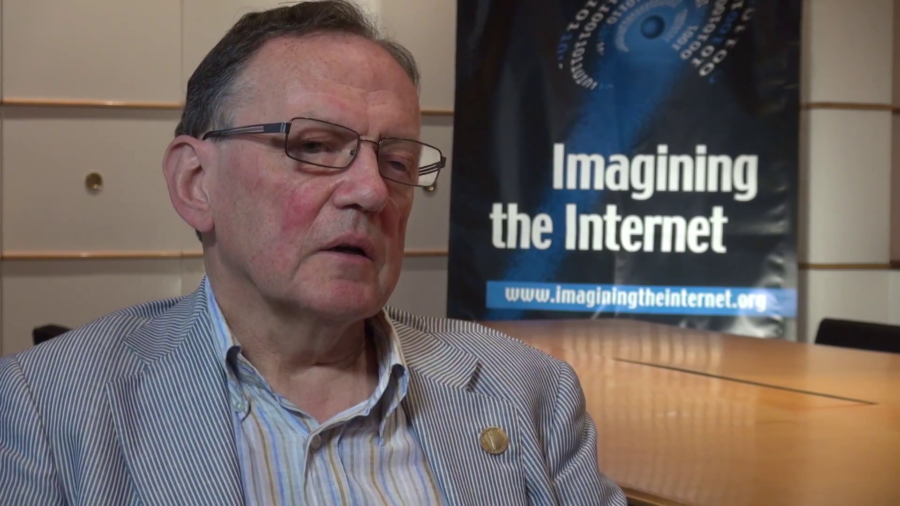Dai Davies: Well it started in 1991 when I was asked to run a project, a simple three-year project to build a pan-European data network to support research and education. And I just took it as a job. And I intended when I’d done that job to go on and do something else. But the challenge was to create a network which was up to date, and at the time there was considerable interest in having an Internet network. And so in fact that’s what we built.
So by 1993 we had a network, but we had no organization to support it. And in creating the organization to support it, we created a new job opportunity which I then decided to take. And I’ve been doing it ever since. So I’ve been running the pan-European networking organization that supports the pan-European research and education Internet.
Intertitle: Describe one of the breakthrough moments of the Internet in which you have been a key participant?
Davies: Well the breakthrough moment was really because in 1991, 1992 in Europe, there were two camps fighting out the choice of technology. It was very much a sort of big-endian versus little-endian argument. But on the one hand there was the X.25 camp, and on the other hand there was the IP camp. And so I was trying to reconcile these two quite conflicting forces. And I worked out that I could build a network which was an IP network but which still allowed X.25 to flow over it. And so I managed to find a compromise between these two camps who were fighting one another. And so we could move forward, because otherwise it would have been a straight fight. And it was way out of this sort of conflict between two technical views which are completely opposed to one another. And so eventually, in two or three years the X.25 withered and the network became a pure IP network. That was I think quite important from the European perspective, because without that sort of lubrication as it were, the battle would’ve gone on and it would have been a war of attrition, technology-wise, which would not have done anybody any good.
Intertitle: Describe the state of the Internet today with a weather analogy and explain why.
Davies: I think it’s sunny but maybe there’s the odd storm coming up ahead.
The Internet has been a huge success. It has created opportunities for people that didn’t exist twenty years ago. It has change society in ways that few would have predicted. And that’s all extremely good, but at the same time there are some downsides to it that really aren’t perhaps fully appreciated yet. And I think personal privacy is one area, and security is another area. And both of those things are potential threats to future development. In practice I think they will be overcome, but it’s only fair to recognize that although a huge amount has been achieved there are certainly these two areas in my view that are potentially problematic looking ahead.
Intertitle: What are your greatest hopes and fears for the future of the Internet?
Davies: My concern really relates to the fact that it would be essentially used by criminals. That you can already see there’s a lot less violent crime. Why do you need to hit somebody to rob them if you can do it stealthily using using a network and using identity theft? I think that is really a big area of concern, that the malefactors will utilize this in a way that historically has not been the case. And that’s a major problem.
I think the thing which I see as being really important is there are a lot of still quite routine jobs, where people are adding very little value other than moving information from one place to another. And I think that aspect of work will become increasingly rare in the same way that for example if you look back say forty, fifty years ago, factory work consisted of relatively routine things. Now factory work is a much more sophisticated form of work, and the routine things are done automatically. I think the same thing will happen in an office environment. Which should free people up to fulfill themselves more in other ways.
Intertitle: What action should be taken to ensure the best possible future?
Davies: That’s an extremely difficult question. I think that there are two assumptions in it. One is the “we” and the other is the action. I don’t think the Internet is being created by we’s and I don’t think it’s being created by conscious action among groups. I think it is very much something that is evolved in its own right. And so I don’t really feel that trying to influence the direction too much from a policy point of view, for example, is necessarily a good idea. I think the sort of developments that will come along are much more sophisticated applications that help people in their ordinary lives. But I think that will happen. I’m not personally convinced that policy-driven initiatives to create things in the context of the Internet are particularly valuable.
